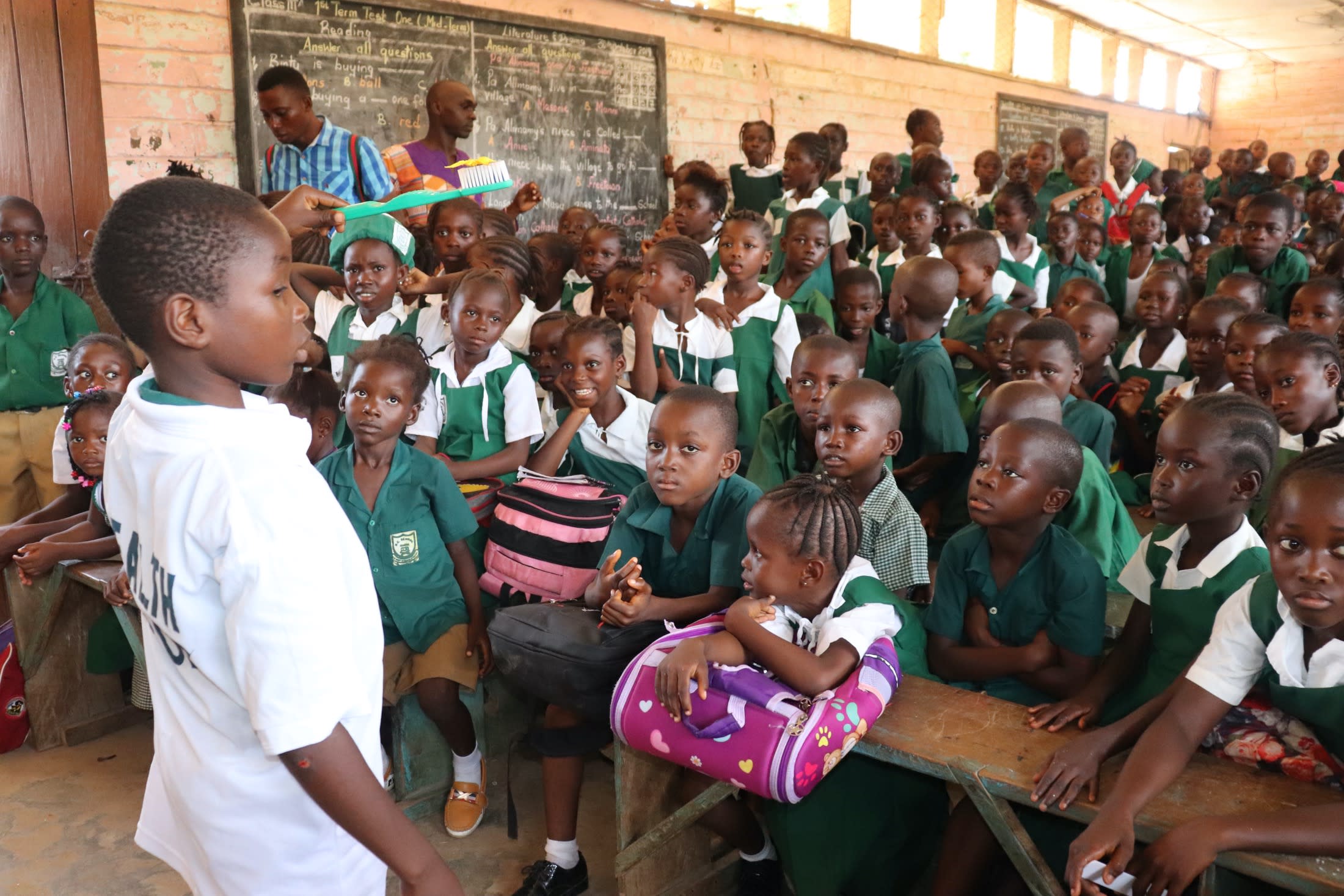The District Educational Council (DEC) Mahera Primary School was established on April 17th, 1947. This school is responsible for providing education to some prominent people in the chiefdom. The head teachers that have brought this school from infancy are Pa Ibrahim Kahn, AK Sesay, and Mrs. Josephine Macauley. The school was formed by the District Educational Council with the help of some community members who helped to fund and subsidize the payment of teachers. The school in its infancy was comprised of 3 buildings with a latrine for both teachers and pupils.
The first head teacher was the late Pa Ibrahim Kahn, with a total of 206 pupils of which 116 were boys and 90 girls. The school has completely changed over the years with additional buildings to accommodate the growing demand of the 1,242 students who attend today.
Being the second oldest school in the chiefdom has its perks and benefits. One is that all the parents would like to have their children attend the same school. The school has produced the likes of members of parliament, paramount chiefs, teachers, professors, and the armed forces to name but a few. The routine is normal for all students in all schools throughout the chiefdom.
Special attention is drawn to the child health club of this particular school. A team of 20 students is chosen from Class 3 to Class 6, students with more than average ability in expressing themselves and who are not shy in public speaking. The child health club members are trained to train other students and other communities in the areas of hygiene, sanitation, and water safety. They play a great role in our educational hygiene puppet show and in passing information to the school and community.
The well that provides water to the school and the local community members is located on school property and monitored with members of the school teachers as part of the water user committee. It is at the doorstep of the school, making fetching water very convenient for the pupils.
Except it already does not work.
The pressure on the well and a drop in the water table mean that it often will run dry for periods until it recharges with water. The sheer size of the school population requires this school to always have a clean supply of water day in and day out. But this well is unable to meet that demand.
"The water that is required for use at the school for the day far exceeds [the] 2 drums we can collect each day. We do not want to put the children through the agony of fetching water and crossing the heavily trafficked road," said Alimamy Kamara, one of the school's head teachers.
The nursery students are always in need of water either to drink or to use after using the latrine. The headmistress, Madam Haja Kamara, takes all the necessary steps needed to provide a safe and learning-friendly environment. Without the provision of safe water at the school, however, the negative consequences will be astronomical. The young children are susceptible to contracting typhoid, dysentery, and diarrhea.
Fortunately, there is a solution to the problem facing this school.
Here’s what we’re going to do about it:
Well Rehabilitation
The well marked for this overhaul needs major work to supply adequate, clean water to the community year-round. The pump will be removed, and a hand auger will be lowered inside and powered by a drill team. This hand auger will allow the team to drill several meters deeper to hit a sufficient water column that will ensure the well supplies water throughout all seasons.
As the team drills, casing will be installed, transforming the bottom of this hand-dug well into a borehole. PVC piping will connect this lower system directly to the pump, a combination that we know will also improve the quality of water.
Once this plan is implemented, everyone within the community will have access to safe drinking water in both quality and quantity, even through the dry months.
Hygiene and Sanitation Training
There will be hygiene and sanitation training sessions offered for 3 days in a row.
No handwashing stations were observed here. After our visit, the hygiene and sanitation trainer decided it would be best to teach community members how to build a tippy tap (a hands-free handwashing station built with a jerrycan, string, and sticks). They will use these tippy taps for handwashing demonstrations, and will also teach about other tools like dishracks and the importance of properly penning in animals to keep them away from people's food and water.
These trainings will also strengthen the water user committee that manages and maintains this well. They enforce proper behavior and report to us whenever they need our help solving a serious problem, like a pump breakdown.

 Borehole Well and Hand Pump
Borehole Well and Hand Pump




























